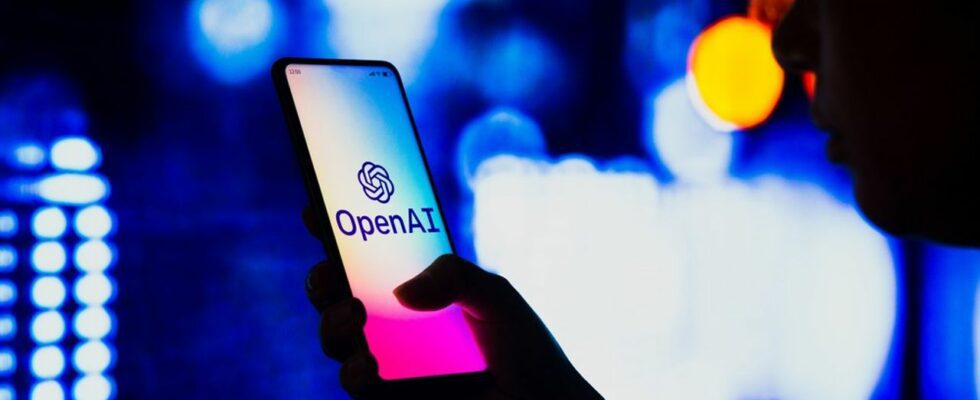OpenAI, the organization behind the popular ChatGPT, set out to develop a tool to discreetly sign AI-generated content. A prototype would already be functional.
This signature could help detect cheating on an exam or credible malicious content, but which still generates doubts.
Differentiating between humans and machines, a major challenge
Launched in December 2022 by OpenAI, ChatGPT has far from gone unnoticed. Capable of generating text from many questions and adapting everything instantly, he was given special attention. You can ask him almost anything, even to write an essay with a given style or to flush out an error in code. The tool can still be improved, however, and the results must be taken with caution.
However, ChatGPT is advanced enough to cause fears regarding the generation of malicious content or the real origin of the texts produced. An apprehension shared by universities who are particularly afraid of cheating.
OpenAI is therefore looking for solutions to make it possible to identify content produced by ChatGPT, with discreet markers. Scott Aaronson, currently a visiting scholar at OpenAI, said the company is working on integrating a ” imperceptible secret signal “. A functional prototype is already ready, with the objective of preventing generated content from being considered as a human creation.
“ This could be useful in preventing academic plagiarism, obviously, but also, for example, the mass generation of propaganda – you know, spamming every blog with seemingly on-topic comments supporting Russia’s invasion of Ukraine without even a building full of trolls in Moscow. Or use someone’s writing style to incriminate them “, explains the researcher.
Insufficient measures?
Equipped with a cryptographic approach, the tool that OpenAI wishes to offer would also have limits. Scott Aaronson declined to say more, and OpenAI only revealed that this watermark was part of a set of solutions under study to identify content generated by ChatGPT or other text generators. We therefore remain a little in the dark, but several academics and experts have expressed doubts. First of all, being localized on the servers, the tool might not work everywhere. Moreover, it would still be quite easy to circumvent the detection, with synonyms for example.
For his part, Jack Hessel, a researcher at the Allen Institute for AI, believes that a marker that is too obvious could degrade the content, while one that is too discreet would leave too much room for doubt during authentication. He also believes that only OpenAI could be able to provide an accurate detection tool for ChatGPT, where independence would be required. In other words, a print that is too discreet could mislead the observer.
At AI21 Labs, a competitor of OpenAI, we advocate the use of several watermarks, linked to different parts of the texts, associated with highlighting the sources. Be that as it may, the traceability and quality of the content generated are real challenges for the months and years to come.
Source : Techcrunch

19